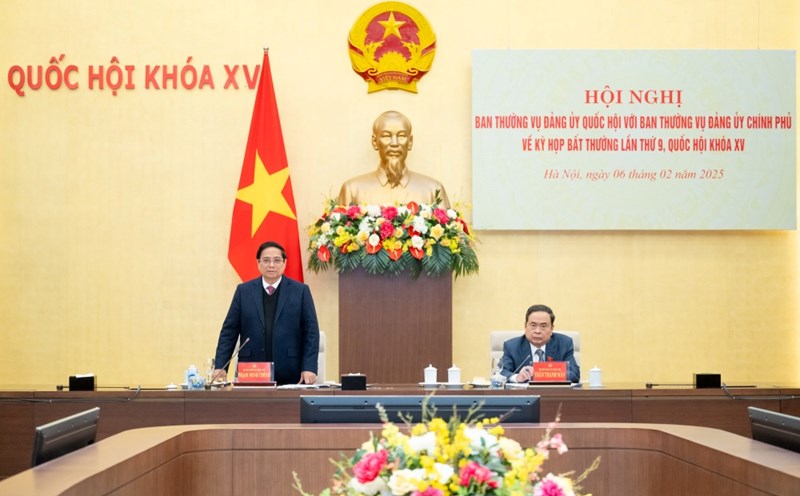At the 9th extraordinary session opening on February 12, the National Assembly will consider and give opinions on the draft Law on Government Organization (amended).
This Law stipulates the position, functions, tasks, powers, organizational structure and responsibilities of the Government; tasks, powers and responsibilities of the Prime Minister and Deputy Prime Ministers; positions and functions of ministries, ministerial-level agencies and agencies under the Government.
At the same time, it stipulates the tasks, powers and responsibilities of Ministers and Heads of ministerial-level agencies; principles of organization and operation, working regime of the Government; working relationship between the Government and relevant agencies in exercising executive power.
In terms of structure, the Government consists of the Prime Minister, Deputy Prime Ministers, Ministers and Heads of ministerial-level agencies. The structure and number of Government members is decided by the Prime Minister upon submission to the National Assembly.
The government's organizational structure includes ministries and ministerial -level agencies. The establishment, abolition of ministries and ministerial -level agencies shall be submitted to the Government for decision.
According to the Draft Law, the Government has the duties and powers to submit to the National Assembly for decision through the law projects assigned by the National Assembly; approving the Law or promulgating the Resolution of the National Assembly on: goals, targets, policies and basic tasks of socio -economic development; basic policies on finance and national monetary; ethnic and religious policies of the State; Basic policy on foreign affairs ...
Submit to the National Assembly for promulgation of the National Assembly's Resolution on establishment and abolition of ministries and ministerial -level agencies of the Government; establishing, dissolving, entering, dividing and adjusting administrative boundaries of provinces and centrally -run cities (hereinafter collectively referred to as provincial levels), special administrative and economic unit.
The Government submits to the Standing Committee of the National Assembly for decision and promulgation of the Resolution of the National Assembly Standing Committee on: Establishing, dissolving, entering, dividing and adjusting the boundaries of administrative units under the provincial level.
The Government submitted to the President for decision on special amnesty according to its competence.
The Government has the task of unifiedly managing the national administration, in a unified, transparent, continuous, democratic, clean, professional, modern, effective, efficient manner, serving the people and subject to the people's inspection and supervision.
In which, unifying state management of the organization of the state administrative apparatus, of cadres, civil servants, public employees and public service in state agencies and public service units; directing the implementation of state administrative reform, reform of the public service and civil servant regime;
Decide on the staffing of cadres and civil servants in state administrative agencies and the number of employees in public service units from central to local levels.
Stipulating the maximum number of deputy heads of the head of the unit attached to the Government agency, the specialized agencies under the Provincial People's Committee, the specialized agencies under the district People's Committee, the unit directly under the specialized agencies under the People's Committee of the People's Committee conscious.
Unifying the state management of the organization and operation of non -governmental associations and organizations.
Unify the state management and organize the implementation of the regime of salary, allowances and other regimes and policies for officials, public servants and public employees in state agencies and public non -business units central to local.
Unifying and effectively using national resources. Agree to manage the use of state budget, other public assets and implement financial regimes in accordance with law in state agencies; Implementation of economical and waste combat policies.











